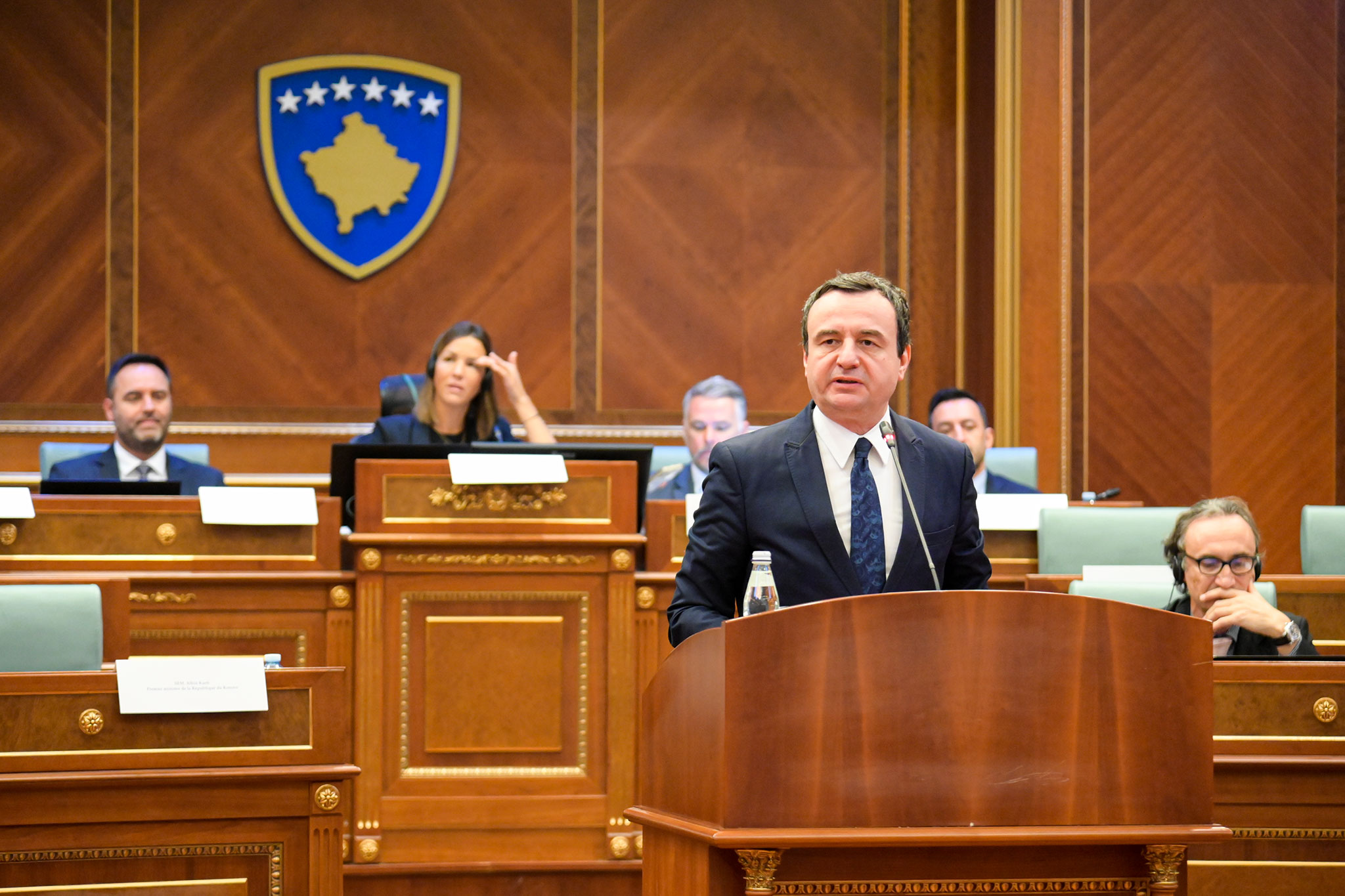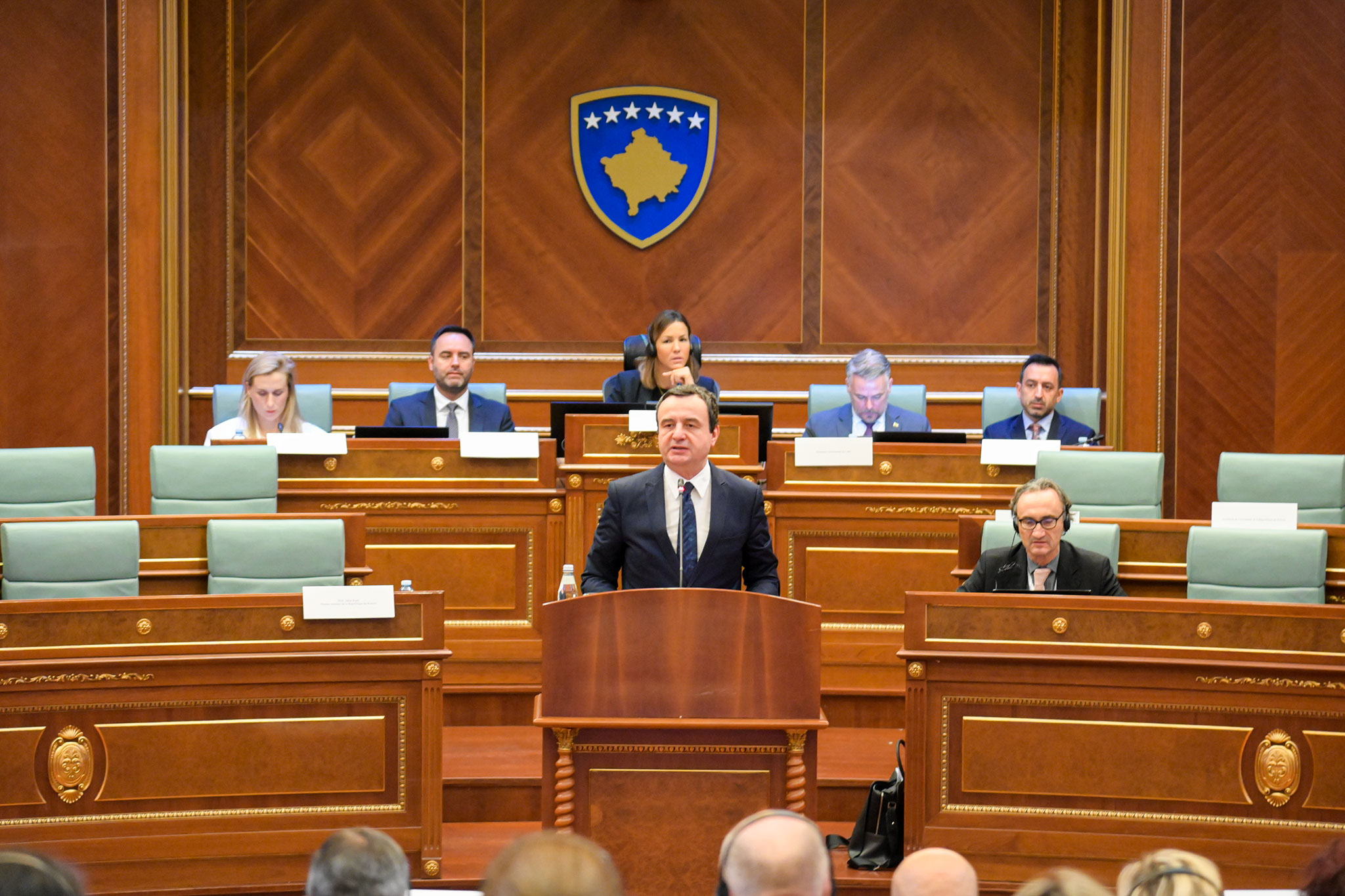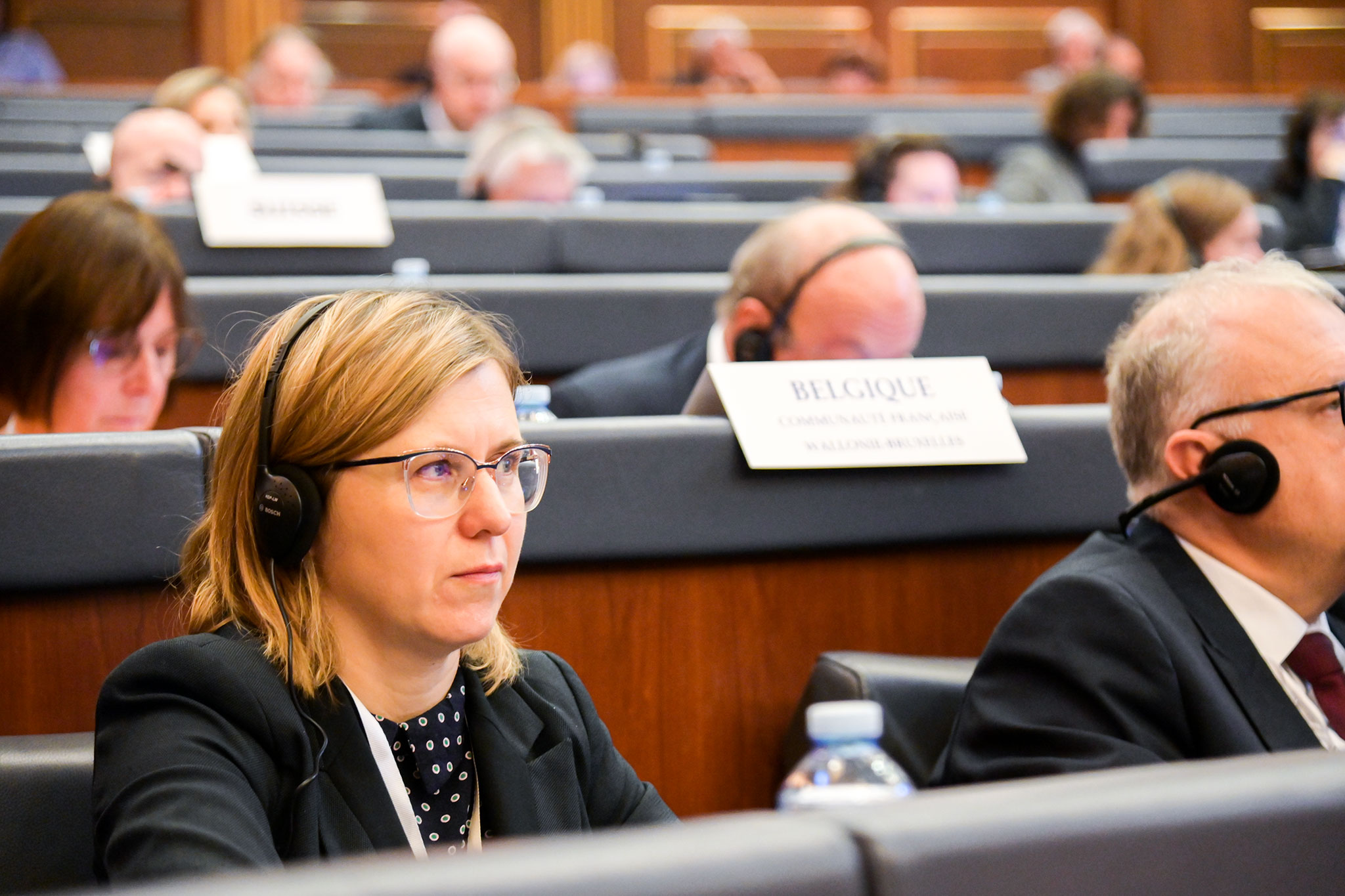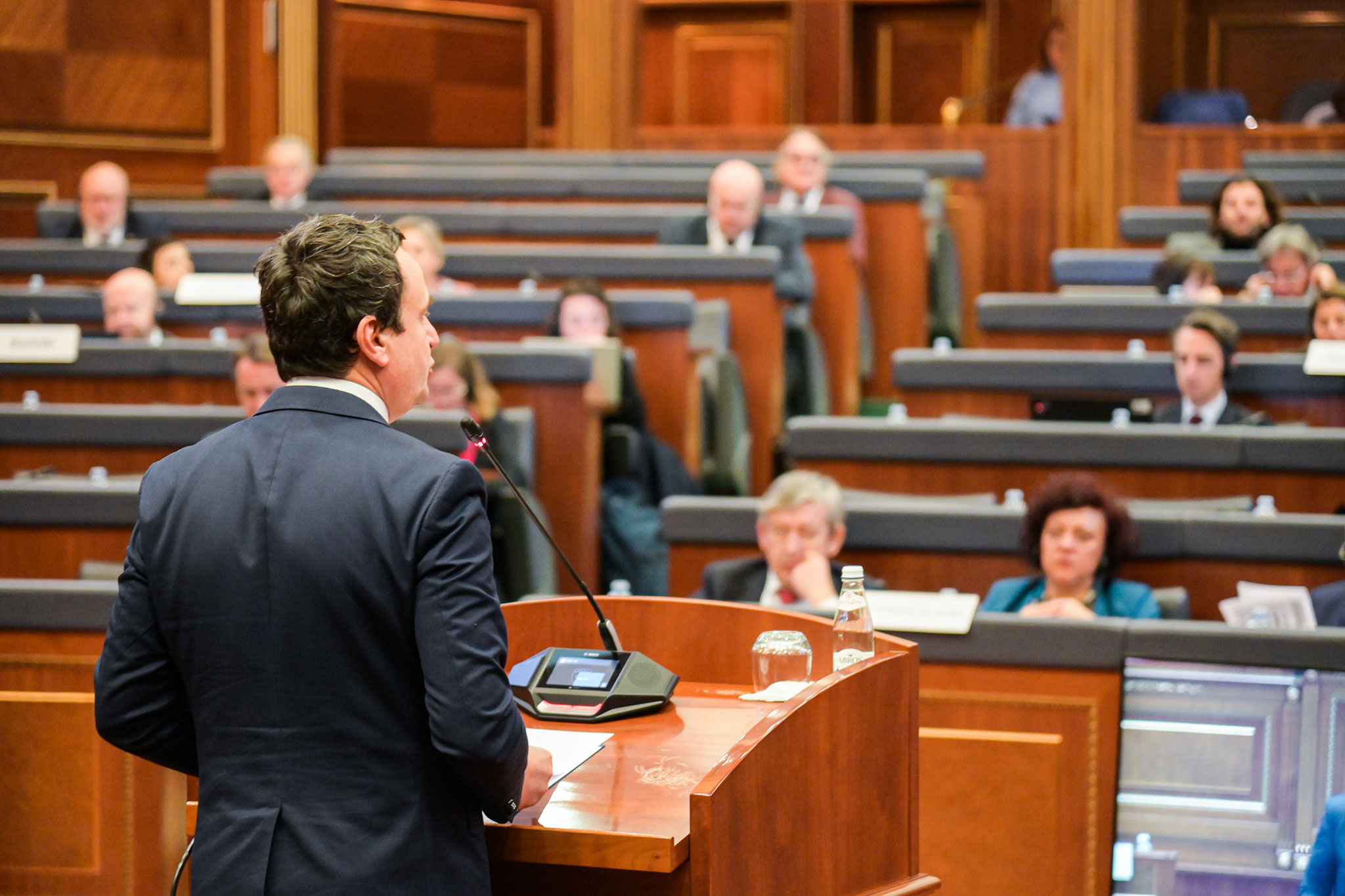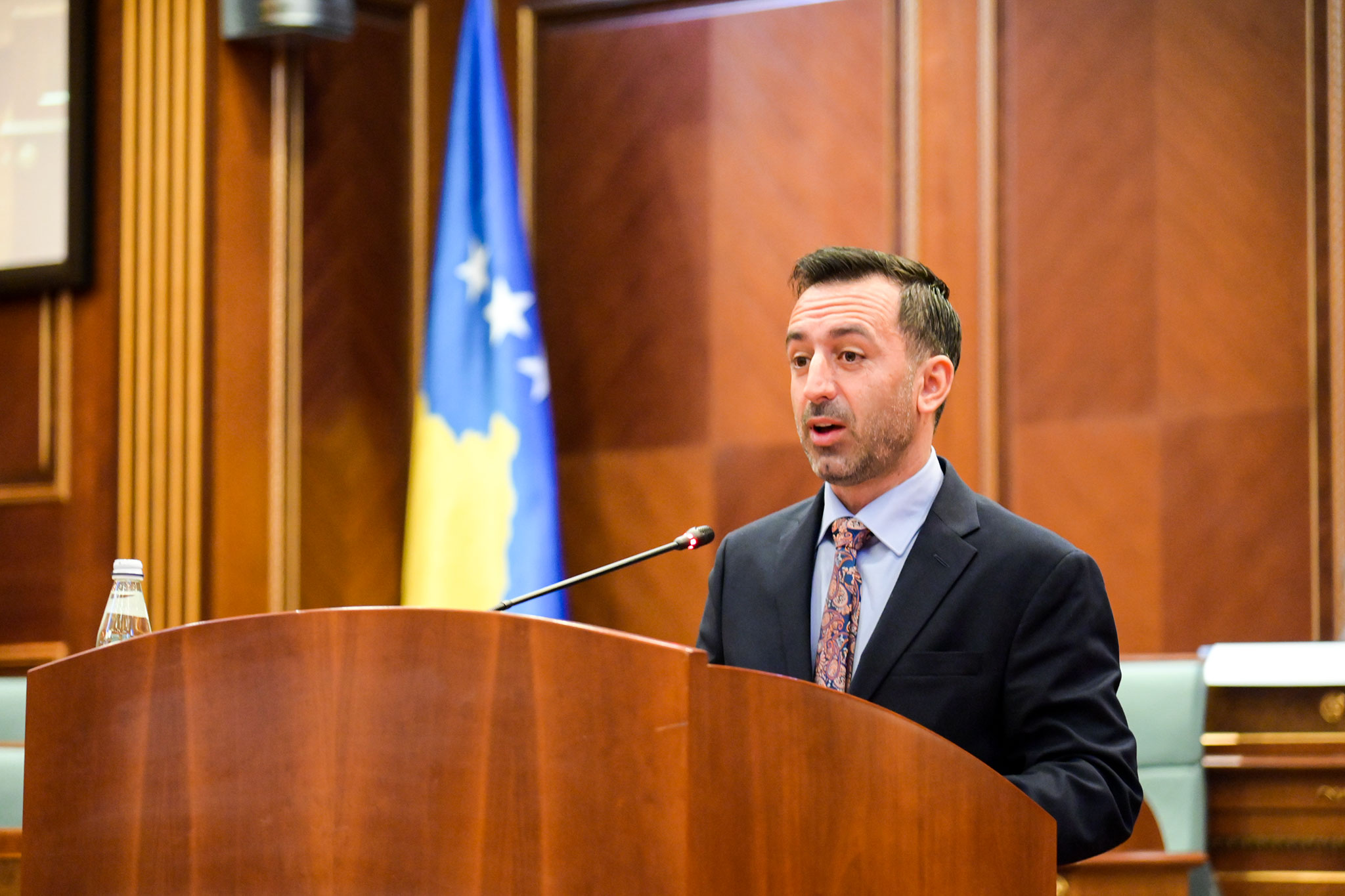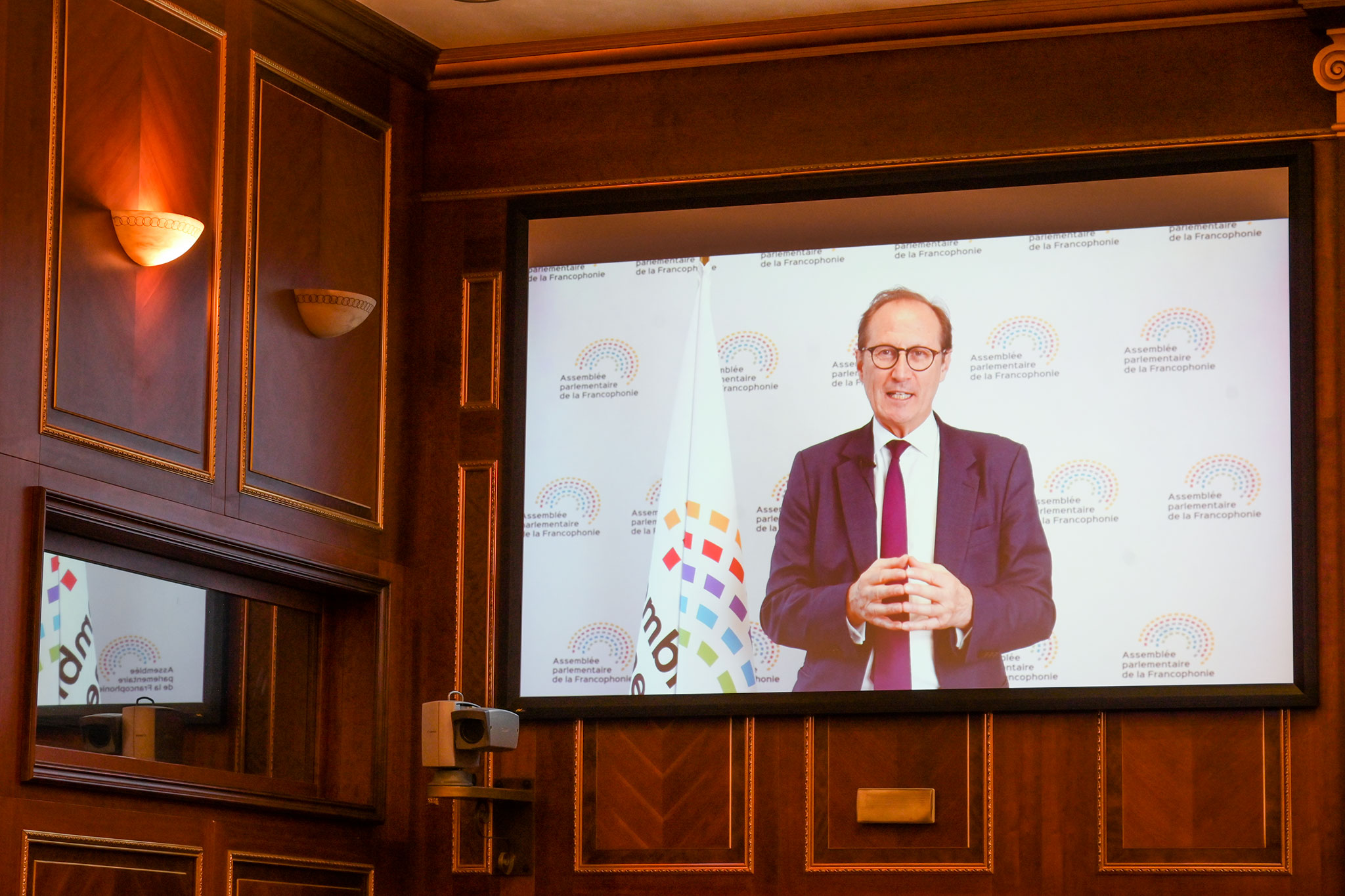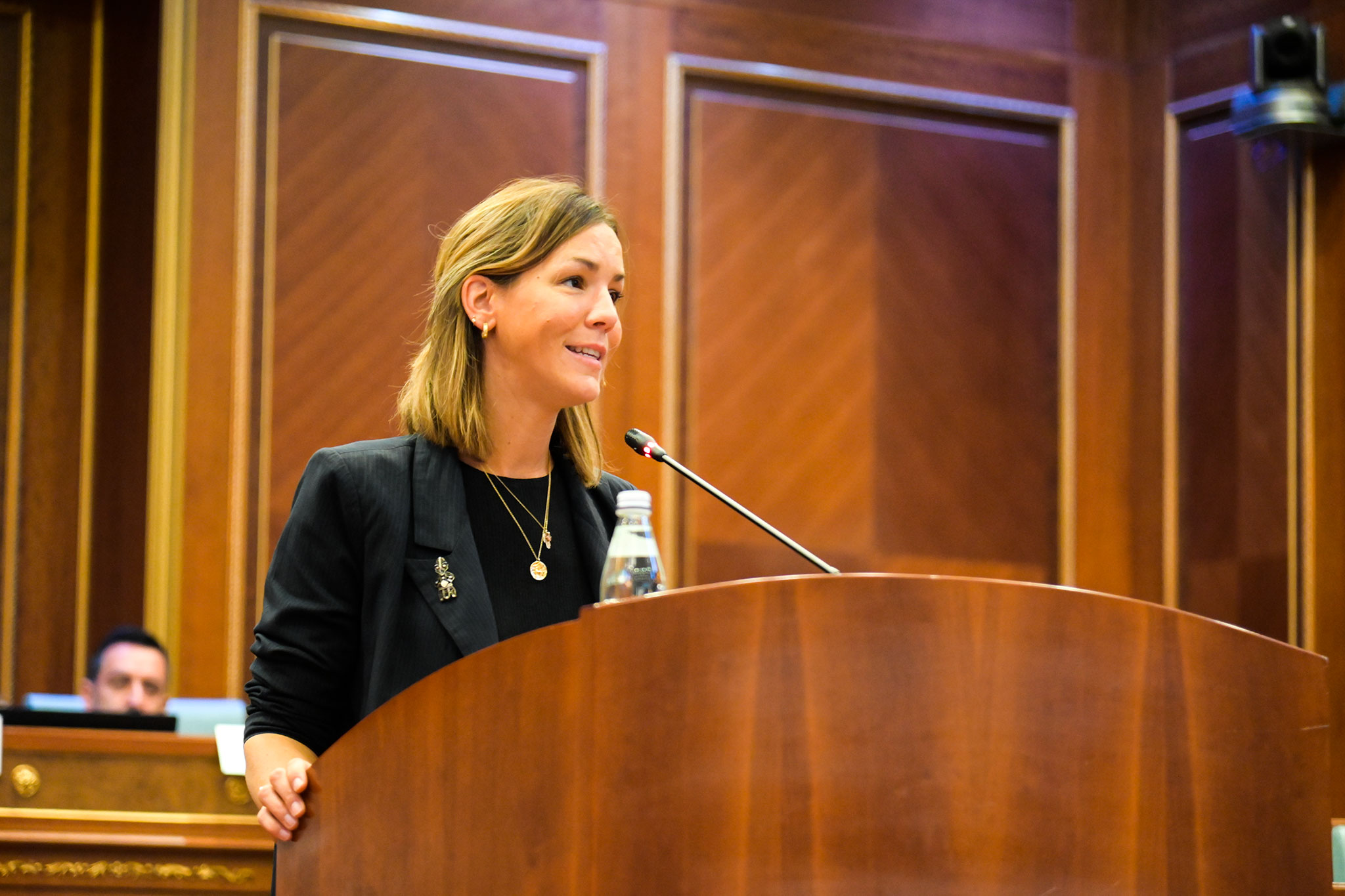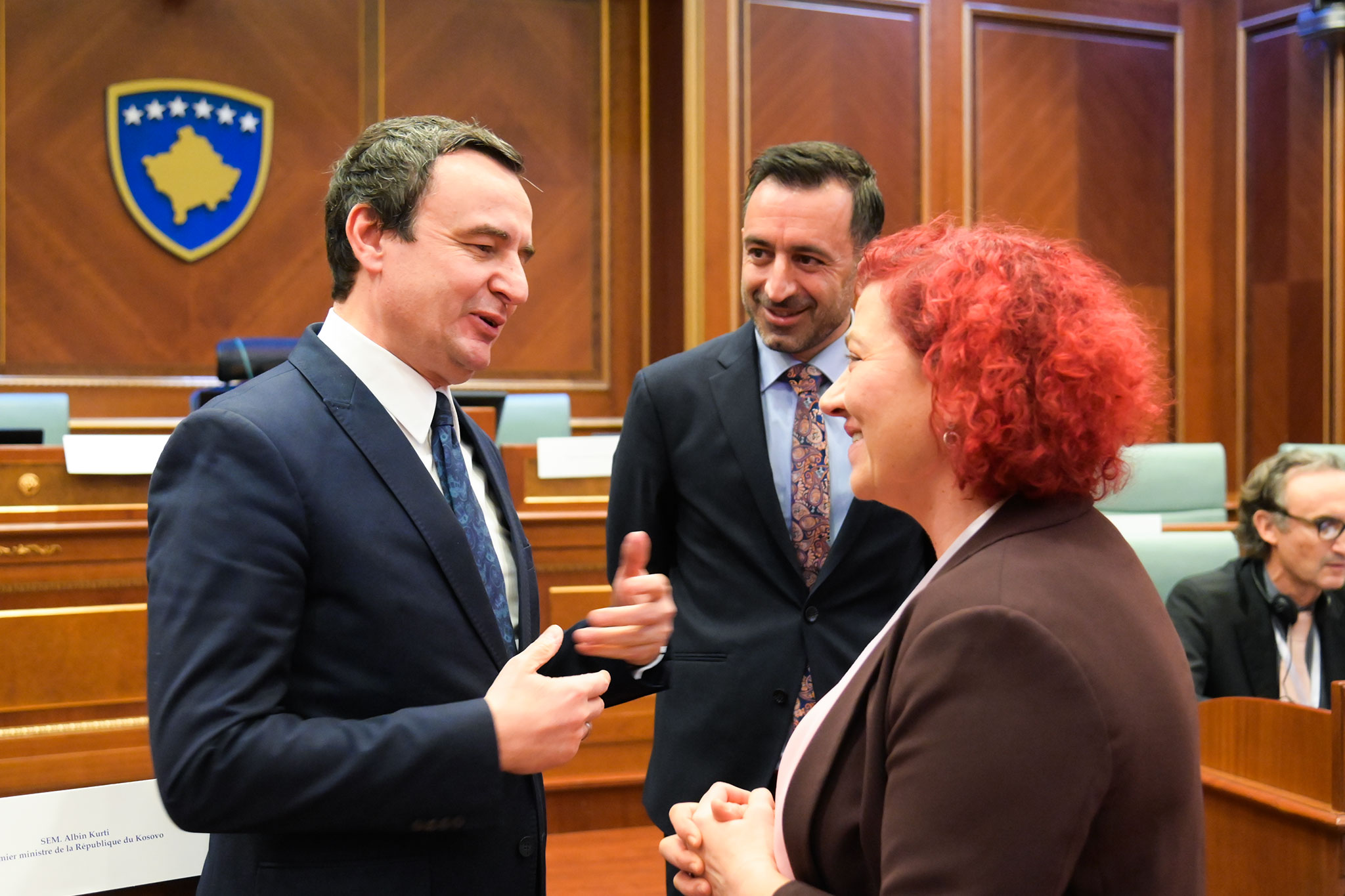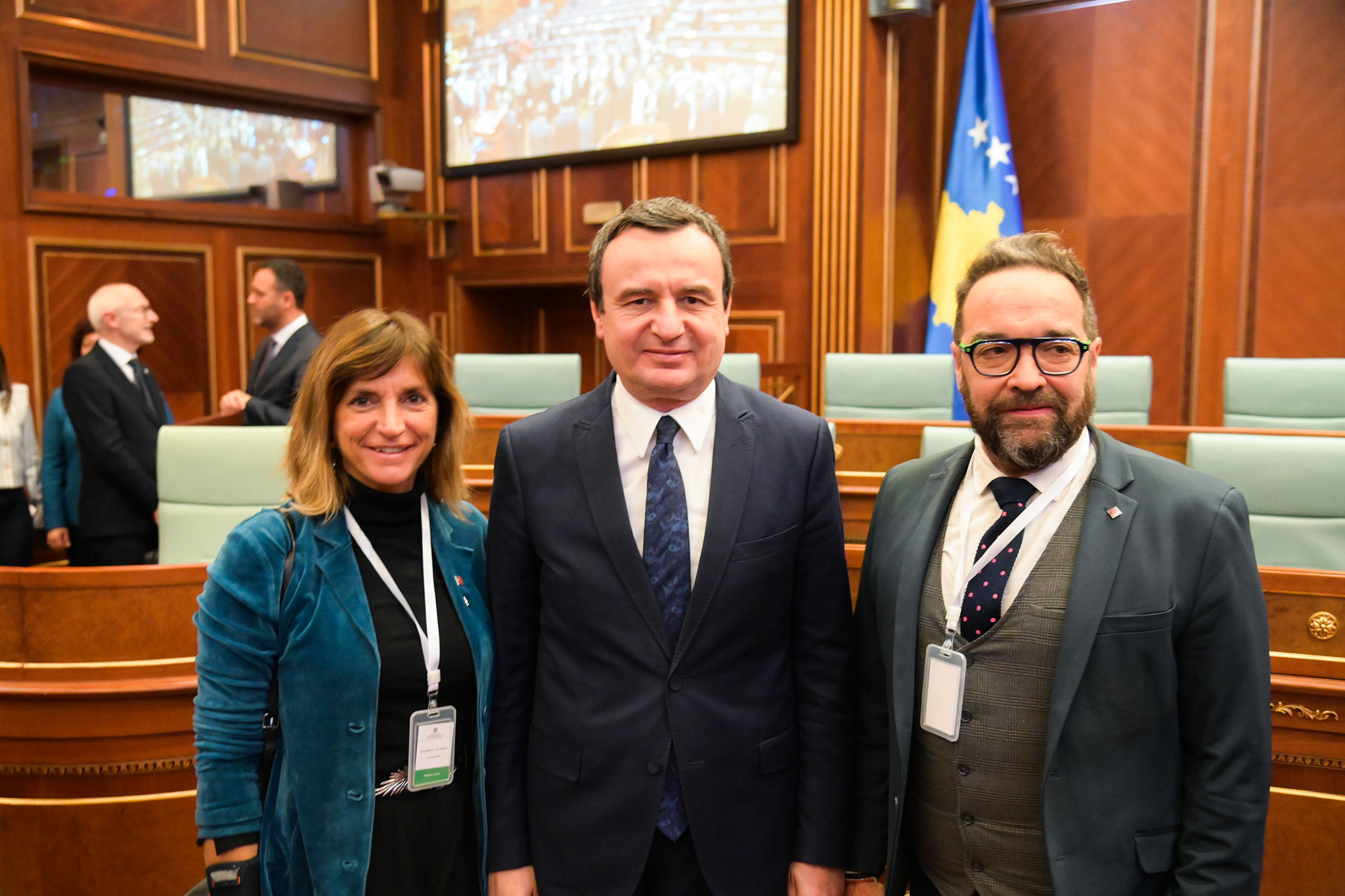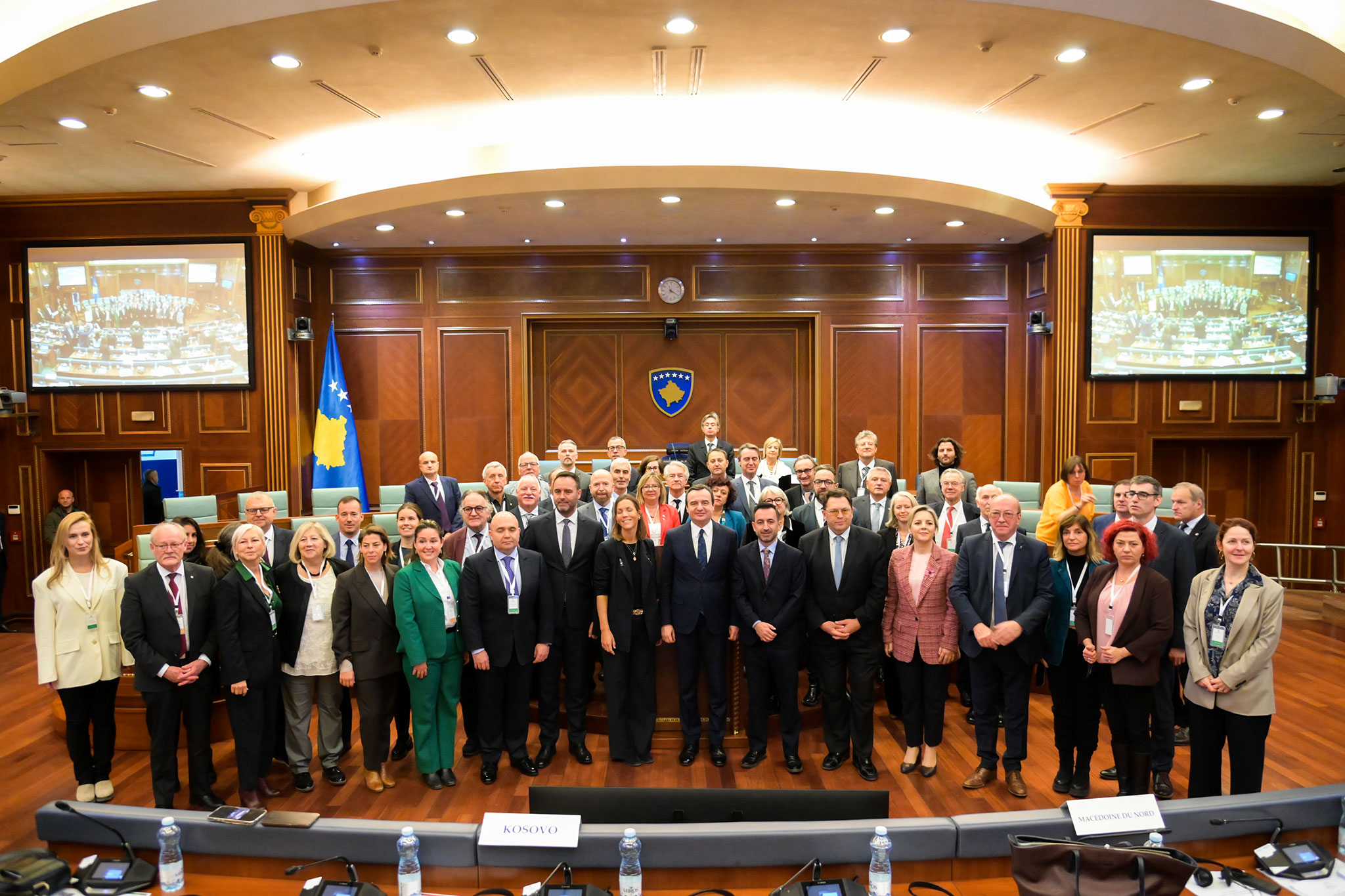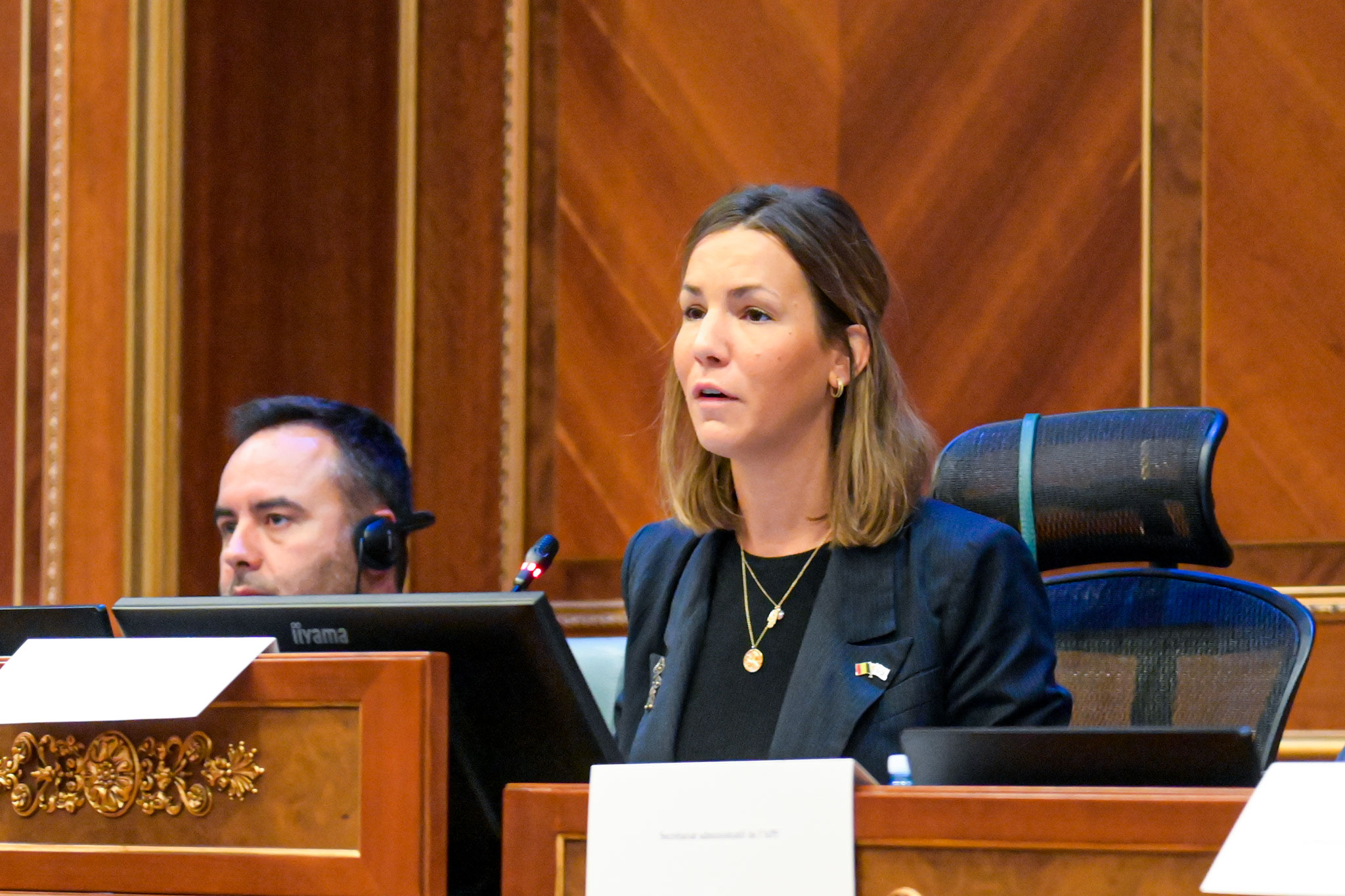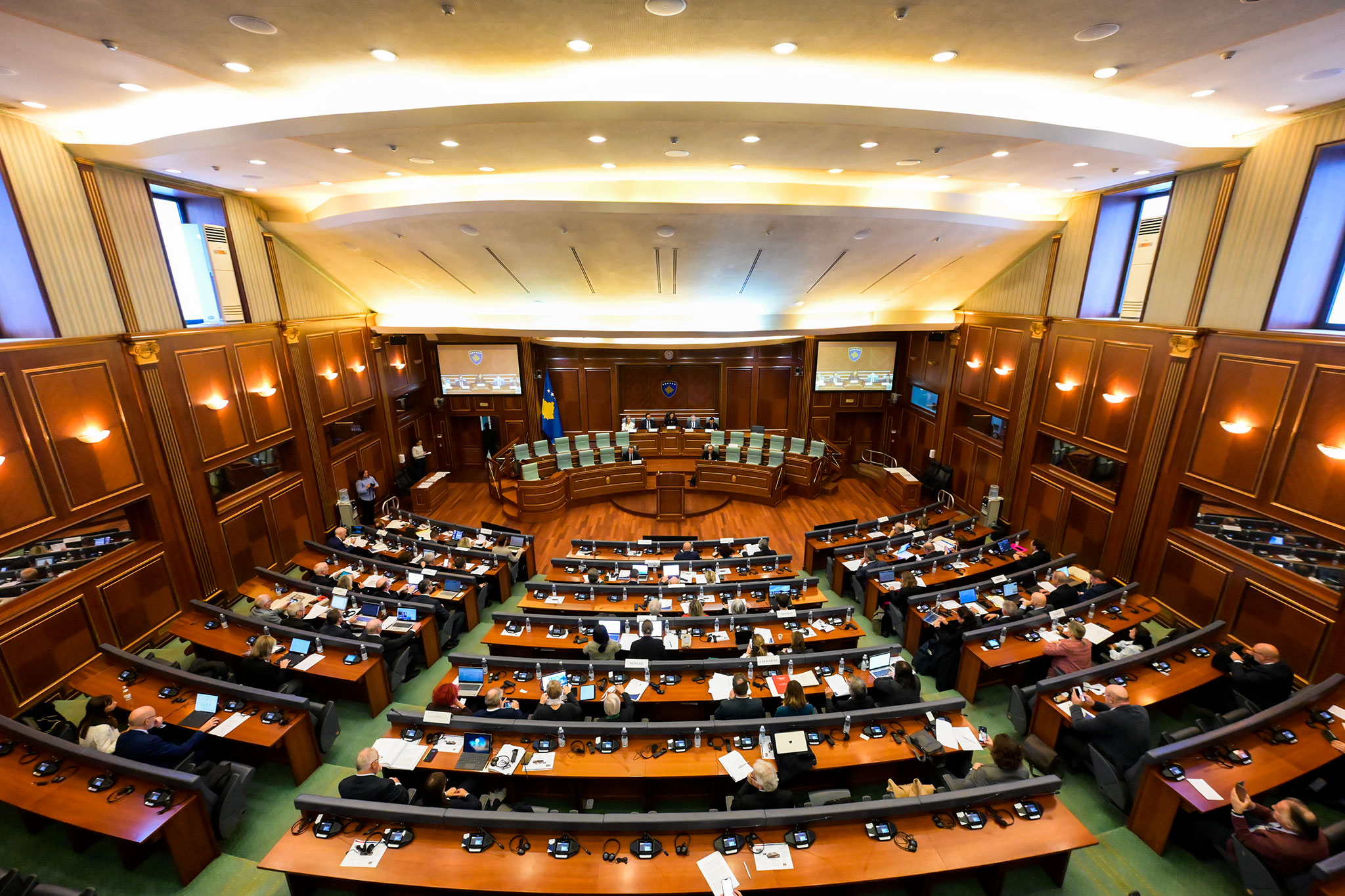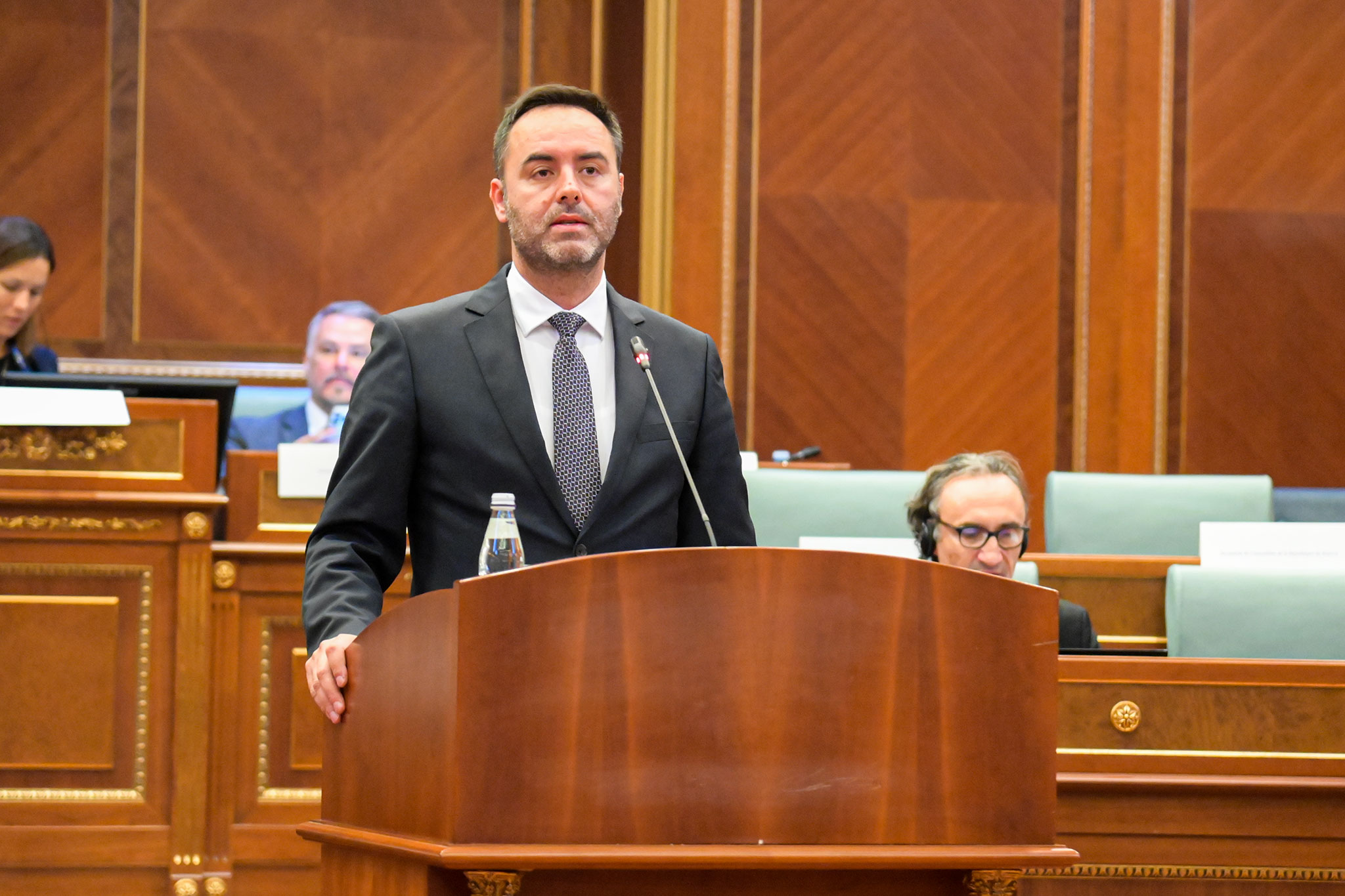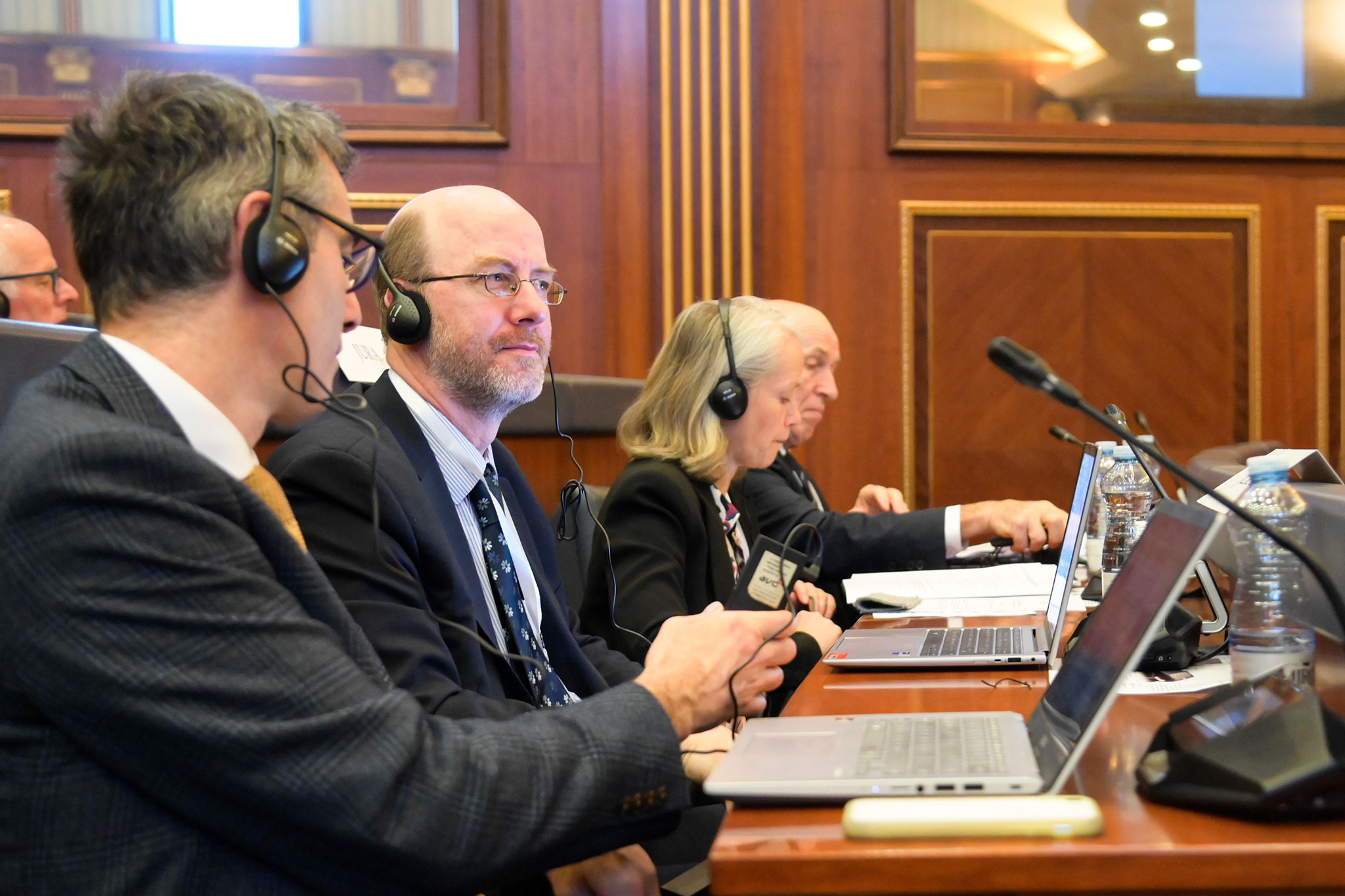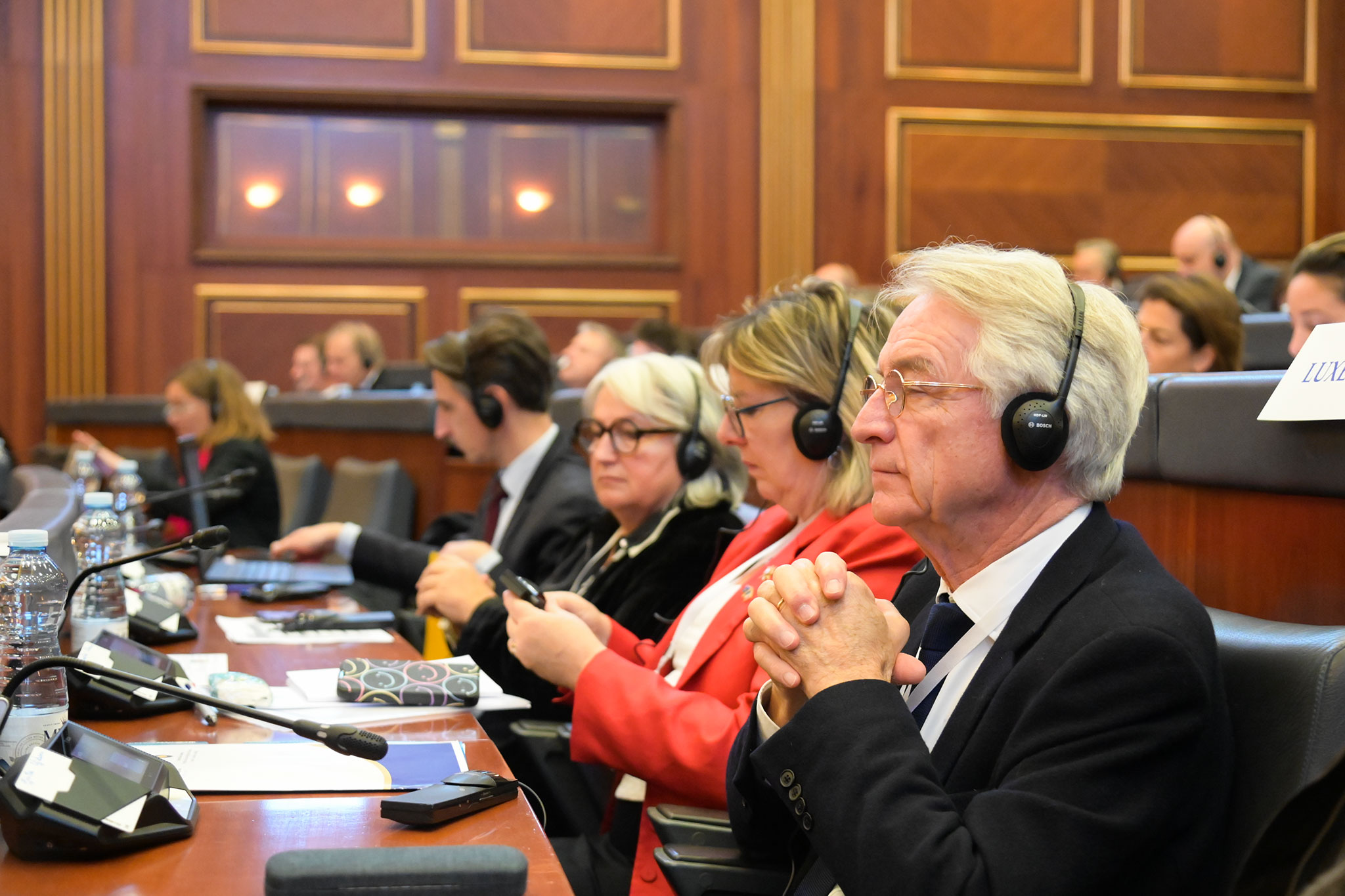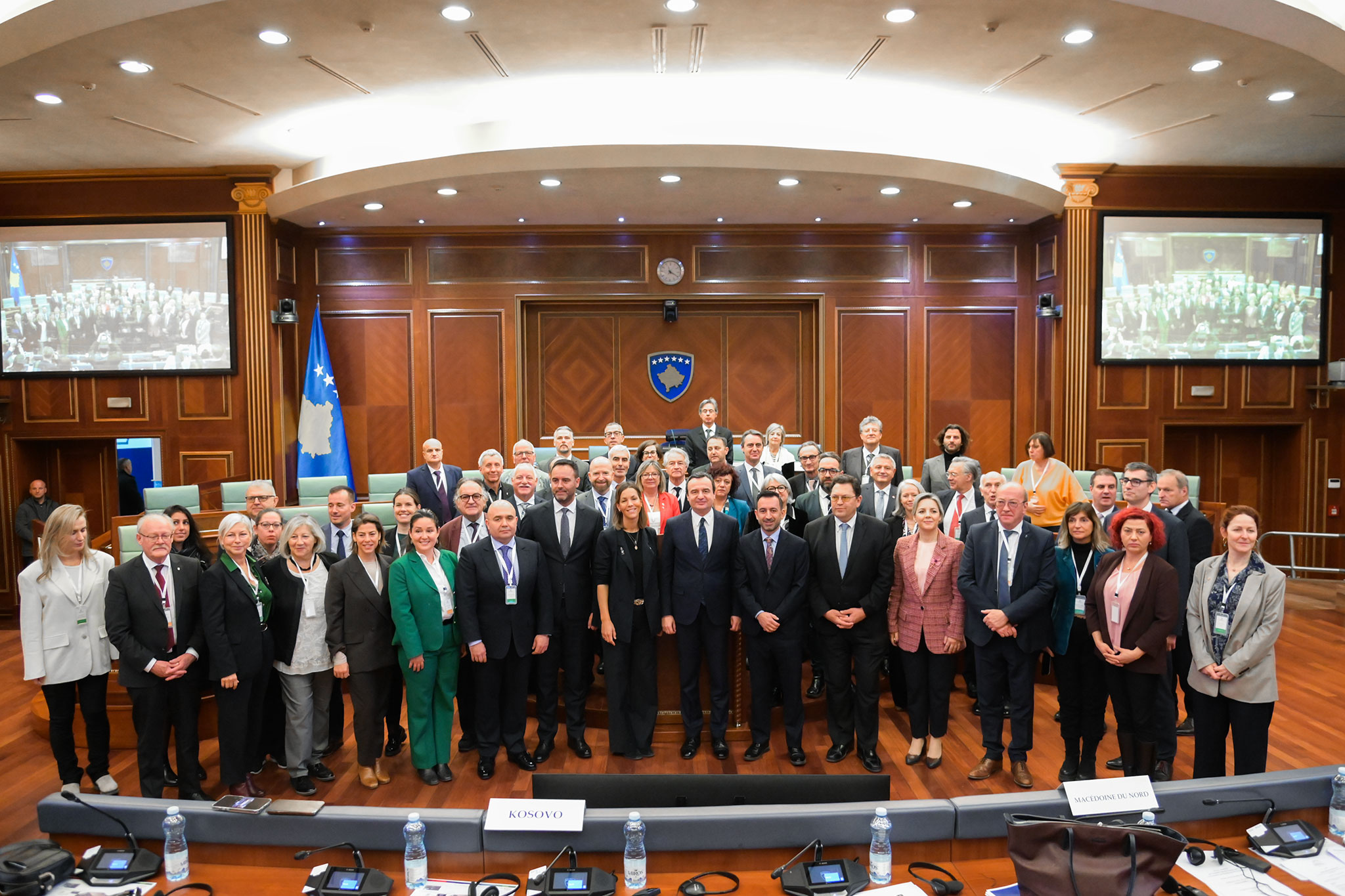Prishtina, November 12, 2024
In the hall of the Assembly of the Republic of Kosovo, the 36th session of the Assembly of European Regions (AER) of the Parliamentary Assembly of La Francophonie began today, in which the Prime Minister of the Republic of Kosovo, Albin Kurti, participated as a key speaker.
Since 2022, the Assembly of Kosovo holds the status of an associate member in the Parliamentary Assembly of La Francophonie.
Prime Minister Kurti’s full speech:
Honorable Speaker of the Assembly of the Republic of Kosovo, Glauk Konjufca,
Dear Members of the Assembly,
Honorable regional delegate for Europe of the Parliamentary Assembly of Francophonie, Ms. Anne Lambelin, and all members of your delegation,
Honorable attendees,
Ladies and gentleman,
On behalf of the Government of the Republic of Kosovo, I have the pleasure to welcome you and join you here in the temple of our democracy. In my nation, just like in yours, the parliament represents our collective fight to defend the principles derived from the finest societal model ever known, which is democracy.
But, more than that, in Kosovo this parliament symbolizes a long struggle for freedom, justice, and equality. It may seem odd to realize that we are just a quarter-century away from the liberation of Kosovo and less than 17 years since our country’s independence.
As we address this place, where many of us still vividly remember the dark years of the late 20th century, I want to highlight that democracy, fundamental human rights, and peace, which we were all deprived of back then, are of great value to us today. Among these fundamental values, allow me to emphasize that even though the population of Kosovo is about 93% Albanian, our country embodies a high level of respect for multilingualism and multiculturalism, which is enshrined in our constitution and reflected in every state law, while 20 out of 120 seats in the Assembly are reserved for ethnic minorities. Consistently, Kosovo is a country where the core values we share with the Francophone community are present.
Nevertheless, I must point out that, despite the desire to advance from an associate member to a full member of the International Organization of La Francophonie, Kosovo has still not been able to fulfill all the necessary tasks to achieve this status. The last summit held in France last October, ten years after Kosovo became an observer member, was nevertheless an important moment on our path towards the core values of the organization.
Of course, it is understandable that not everything depends on Kosovo’s decisions, considering that there must also be some political assessments related to the criteria of good neighborly relations. In this context, we are all aware of the historical and security characteristics regarding the challenges impacting the whole region, despite Kosovo’s proven willingness to contribute to all aspects of regional cooperation.
But, meanwhile, I am convinced that the full potential for developing French language learning in Kosovo remains untapped.
Therefore, in anticipation of the upcoming summit in 2026, when Kosovo aims to reapply for full membership status, our Government and the municipalities of Kosovo need to start working together to find a way to address the decline in French language teaching hours across the country. This should be the first step knowing that we can count on the support of the newly established French Institute of Kosovo in Pristina, to jointly identify the most practical and effective ways to succeed.
Furthermore, I believe that the monitoring mechanism of the International Organization of La Francophonie on “The French Language in Diversity”, established at the Djerba Summit in 2022, would be very beneficial in better preparing Kosovo for the upcoming summit. In this regard, I am grateful to the member states of the organization, which last month reiterated their support for Kosovo in continuing this journey and in our efforts towards full membership.
As I mentioned earlier, the full potential of learning the French language has not yet been fully utilized in all its dimensions. I myself am dissatisfied that I have read so many French authors, philosophers, writers, and sociologists, but never directly in French. And I know that with Mr. Glauk Konjufca we share the same feeling and impression regarding French literature and cinema, even though our disappointment is somewhat compensated by the pleasure that comes from seeing how much French literature has been translated into Albanian, as well as by the agreement reached for co-production between the respective cinematographic centers of Kosovo and France.
Despite this, beyond the field of culture, there is much more need for the recognition of the French language. For instance, the bilateral collaboration we maintain with Switzerland, Luxembourg, and Belgium presents new opportunities for individuals engaged with or benefiting from their respective agencies and projects. The growing presence of the French Development Agency, AFD, along with several private companies, has amplified the significance of the Francophone world in our country in recent years.
This summer, at the Olympic Games in Paris, I personally experienced the strength and influence of the French language and its universal values. And last month, back in Paris for the first economic forum between Kosovo and France, I was reminded of the great potential for investment and trade connections between our two countries. In this context, our French-speaking diaspora in Belgium, France, Luxembourg, and Switzerland is an asset that we have incorporated into the government’s vision for the development of our nation.
In fact, the title of the October 2024 Summit of the International Organization of La Francophonie encapsulates the ambitious potential of the Francophone world, of which I would like Kosovo to be a part: “To craft, to introduce novelty, and to engage in French”. And, as I was informed, the FrankoTech Fair organized during the Summit provided a broad overview of what can be achieved by sharing the same spirit of cooperation and the same language, despite our diversity and by embracing it.
Hence, dear attendees of the Francophone Parliamentary Assembly, you have already realized that Kosovo’s aspiration to fully integrate into the International Francophonie Organization extends beyond the singular and unique perspective of learning French alone. In addition to serving as an exceptional means for emancipation and access, the French language is seen as a catalyst for enhancing collaboration among countries, entrepreneurs, and the advancement of Kosovo.
From this perspective, I find the topic of your daily discussions very appropriate and useful. In the current hybrid and global warfare we are living in, there can be no genuine democracy, prosperity for all, and proper cooperation without effectively addressing information manipulation and cyber attacks. Here, you will discover that Kosovo is not exempt from being a target of such attacks.
In conclusion, the French language is what made our great writer, the late Ismail Kadare, known worldwide, who passed away on July 1st this year. French is also the language spoken by the late president and leader of the former pacifist movement, Ibrahim Rugova, who, during the 1990s, found great support among French intellectuals. He was a student of Roland Barthes, who undoubtedly admired his professor.
Yet, the French language conveys so many meanings, and to wrap up this address, I will endeavor to read in French the words of the statesman, poet, and pioneer of the establishment of the Francophone Parliamentary Assembly, Leopold Sédar Senghor:
Le français, ce sont les grandes orgues, qui se prêtent à tous les timbres, à tous les effets, des douceurs les plus suaves aux fulgurances de l’orage.
Please excuse my pronunciation, and I hope you all have a wonderful time in Kosovo and engaging discussions. I sincerely appreciate your support.
Last modified: November 15, 2024
